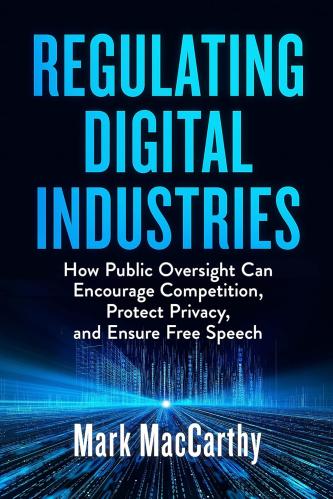Tom Wheeler served as the 31st Chairman of the Federal Communications Commission from 2013-2017.
America’s business leaders, acting through the Business Roundtable (BRT), recently redefined the purpose of a corporation. Since 1997, the BRT’s Principles of Corporate Governance held that corporations exist to serve shareholders—period. In August, however, 181 CEOs of major American corporations recast their corporate purpose beyond the pursuit of shareholder returns. In place of “shareholders” the new Principles use the word “stakeholders.” The change is meant to represent responsibility to groups such as consumers, employees, and communities in addition to shareholders.
Pledging to broaden the aperture of corporate America’s responsibilities is laudable. What remains to be seen is whether the transformation will have any demonstrable effect on how companies behave in the halls of government.
BRT is corporate America’s most powerful lobbying organization. Will the Roundtable and its members use their new sensitivity to guide their response to government regulation?
Too often, the corporate response to regulation has not been “what’s best for all stakeholders,” but “what’s best for the CFO (Chief Financial Officer).” The lobbying refrain sounds like this: “because regulation could hurt profits, it will hurt our ability to invest and innovate and therefore hurt the public interest.” You hear this from Big Pharma’s television ads. Broadband networks used the argument to kill net neutrality. Big Tech hides behind it to exploit our personal privacy.
For almost 50 years—spearheaded by the Chicago School of economists—the gospel that companies know best and regulation is bad has been corporate America’s default policy position. The argument received a boost with the arrival of the internet. As new companies arose and old companies retooled, digital technology was presented as something close to magical. Anything that interfered with the companies’ ability to make their own rules for the digital marketplace threatened to break that magic.
As a regulator, I lost count of the number of times the benefits of “permissionless innovation” were touted as the reason to oppose oversight of corporate activities. The myth of the genius in the garage became the image of digital businesses, whether large or small. It was great positioning, but a specious argument. Oversight of the digital marketplace is less about pre-approval “permission” to follow new ideas than it is about constraining the inherent excesses of company-made rules.
The result of “permissionless innovation” has too often resulted in “permissionless exploitation.” The digital business model of companies has too often exploited users by transforming private personal information into a corporate asset to be monetized. Because of deregulation, companies were free to make their own behavioral rules, including hoarding that data to create monopoly-like bottlenecks.
Interestingly, the Council of Institutional Investors pushed back against the BRT’s new Principles. They argued, “It is government, not companies, that should shoulder the responsibility of defining and addressing societal objectives.” The reality, however, is that absent support by corporate lobbying, the chances of Congress or regulators accomplishing that goal is slim.
A case in point is a national privacy law. Because of the absence of legislation establishing broad privacy rights, Americans’ privacy is less protected than, for instance, the privacy rights enjoyed by Europeans. When California stepped into the federal policy void with a privacy law for their residents, the companies suddenly saw the benefit of a uniform federal law as opposed to the risk of potentially conflicting state statutes. The same companies that only two years before had convinced Congress to repeal the privacy protections enacted by the Federal Communications Commission now say they support privacy legislation.
The trick, of course, is what they support. Here is an opportunity for the BRT to demonstrate its new stakeholder-sensitive Principles. Unfortunately, because the companies are unwilling to accept meaningful protections against their most abusive privacy-invading practices, legislation is stalled.
“Companies can no longer differentiate through words, messages or campaigns, but only by deeds,” Washington commentator Bruce Mehlman recently wrote. It is wise counsel. Let’s see if those deeds start showing up in the development of public policy.
The Business Roundtable is a general, unrestricted donor to the Brookings Institution. The findings, interpretations, and conclusions posted in this piece are solely those of the author and not influenced by any donation.
The Brookings Institution is committed to quality, independence, and impact.
We are supported by a diverse array of funders. In line with our values and policies, each Brookings publication represents the sole views of its author(s).











Commentary
Putting corporate America’s new ‘stakeholder’ principles to work in regulatory policy
October 18, 2019